Sea World - Part One
We go to Sea Worl every few years and enjoy the day. This is the first time since 2010 we have been with the Duda's. Geat fun! We departed from the Del and got into Sea World at 9:10.

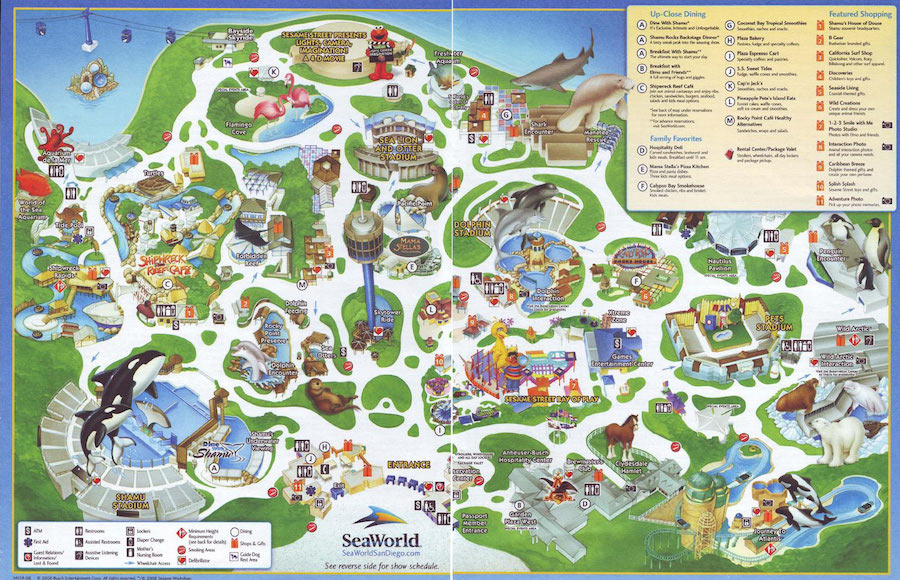
It is a large park!
Did You Know? - SeaWorld was founded in March 21, 1964 by four graduates of the University of California, Los Angeles. Although their original idea of an underwater restaurant was not feasible at the time, the idea was expanded into a 22-acre (8.9 ha) marine zoological park along the shore of Mission Bay in San Diego.
After an investment of about $1.5 million, the park opened with 45 employees, several dolphins, sea lions, and two seawater aquariums, and hosted more than 400,000 visitors in its first year of operation.

You are welcome!
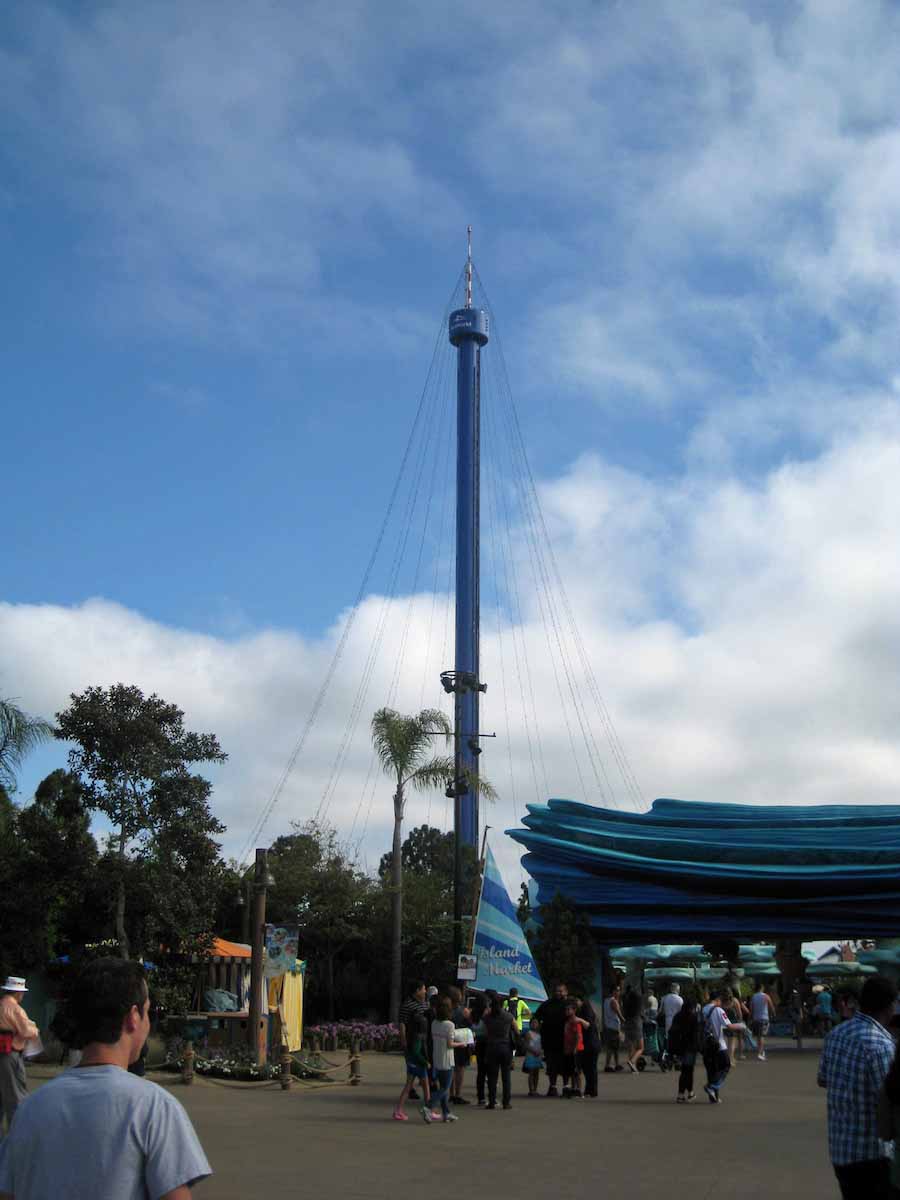
It was closed today
Did You Know? - The Sky Tower is a 320-foot (98 m) Gyro tower that was built in 1969. The ride was refurbished in 2007 with a new capsule. The ride gives passengers a six-minute view of SeaWorld and San Diego. It rises at a rate of 150 feet per minute (46 m/min) while spinning slowly (1.02rpm). The attraction hosts views of Mission Bay and parts of San Diego.

50 years.... Wow!
Explorer's Reef Is At The Entrance
Did You Know? - Introducing Explorer's Reef, SeaWorld® San Diego's spectacular new attraction, where guests will enter the park under a massive wave sculpture and encounter a beautiful, underwater-themed realm of animal attractions, buildings and shade structures. After over a year of planning and construction, Explorer's Reef opened on March 21, 2014, to coincide with the official kickoff of a "Sea of Surprises" to commemorate SeaWorld's 50th Celebration!
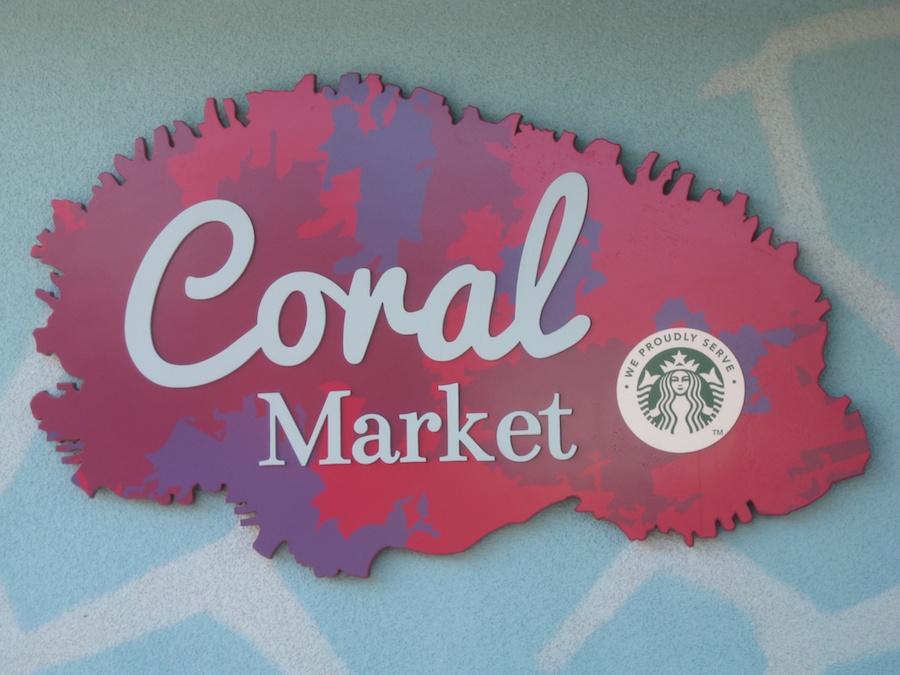
Our first stop... Waiting for the Duda's

The sky was clear... It's going to be a warm day!

We visited the rays
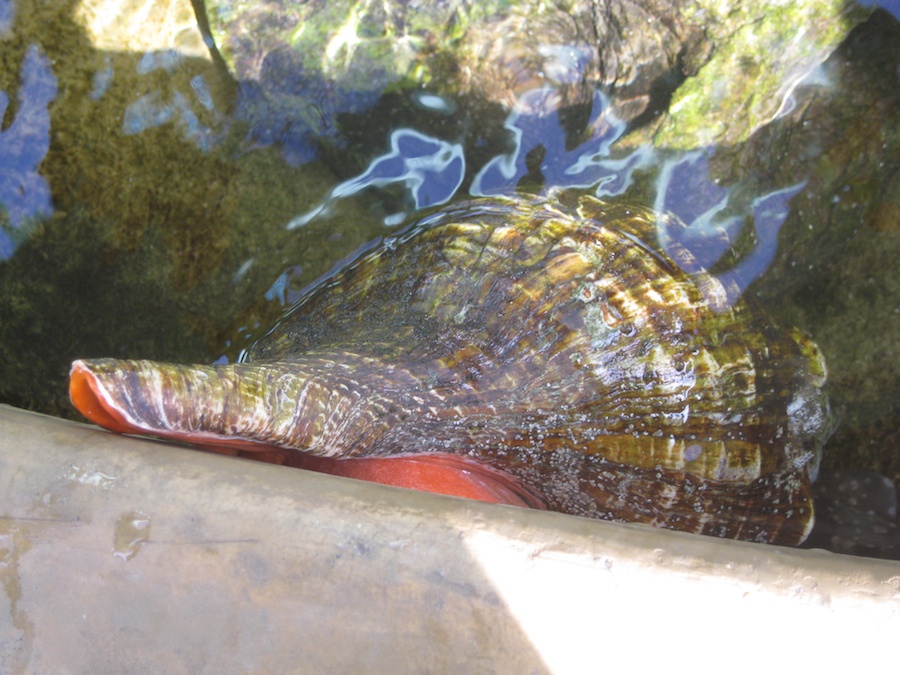
But first a LARGE snail
Did You Know? - Sea snail is a common name for snails that normally live in saltwater, in other words marine gastropod molluscs. The taxonomic class Gastropoda also includes snails that live in other habitats, such as land snails and freshwater snails. Many species of sea snails are edible and exploited as food sources by humans.
Sea snails are marine gastropods with shells. Those marine gastropods with no shells, or only internal shells, are variously known by other common names, including sea slug, sea hare, nudibranch, etc. The diversity within sea snails is enormous.

Bamboo?
Did You Know? - The brownbanded bamboo shark, Chiloscyllium punctatum, is a bamboo shark in the family Hemiscylliidae found in the Indo-West Pacific from Japan to northern Australia, between latitudes 34° N and 26° S, to depths of 85 metres (279 ft). Its length is up to 1.04 metres (41 in). While adults are overall brownish with faint suggestions of bands, the commonly seen juveniles are distinctly barred dark and pale.
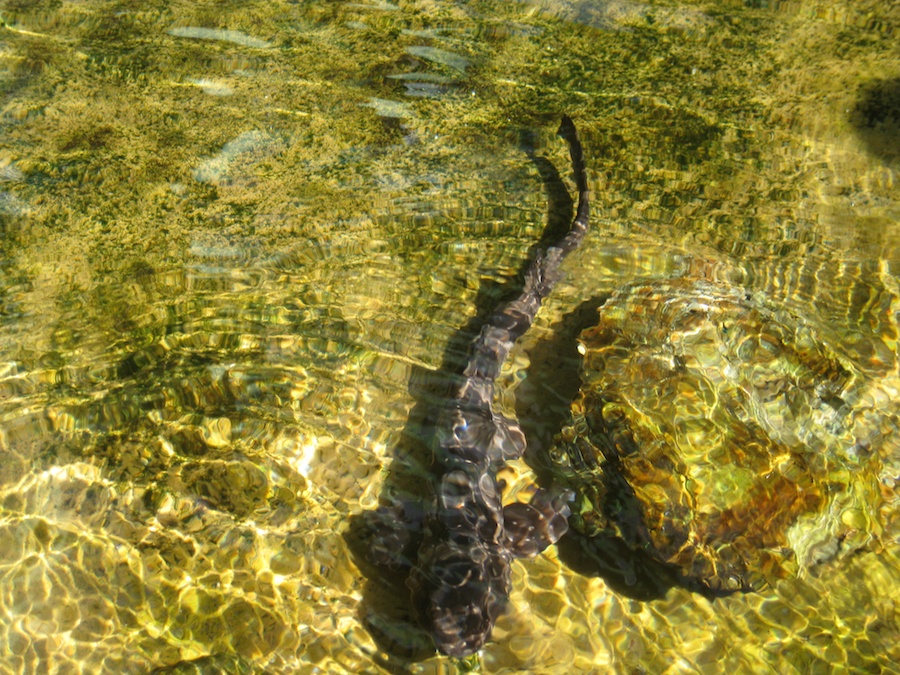
Amazing creatures

Shark eggs getts ready to hatch
Did You Know? - An egg case or egg capsule, colloquially known as a mermaid's purse or devil's purse, is a casing that surrounds the fertilized eggs of some sharks, skates, and chimaeras. They are among the common objects which are washed up by the sea. They are made of collagen protein strands.
Because they are lightweight, they are often found at the strandline, the farthest point of the high tide. The egg cases that wash up on beaches are usually empty, the young fish having already hatched out.

Four months.... Not too long

"OK... What;s next??"
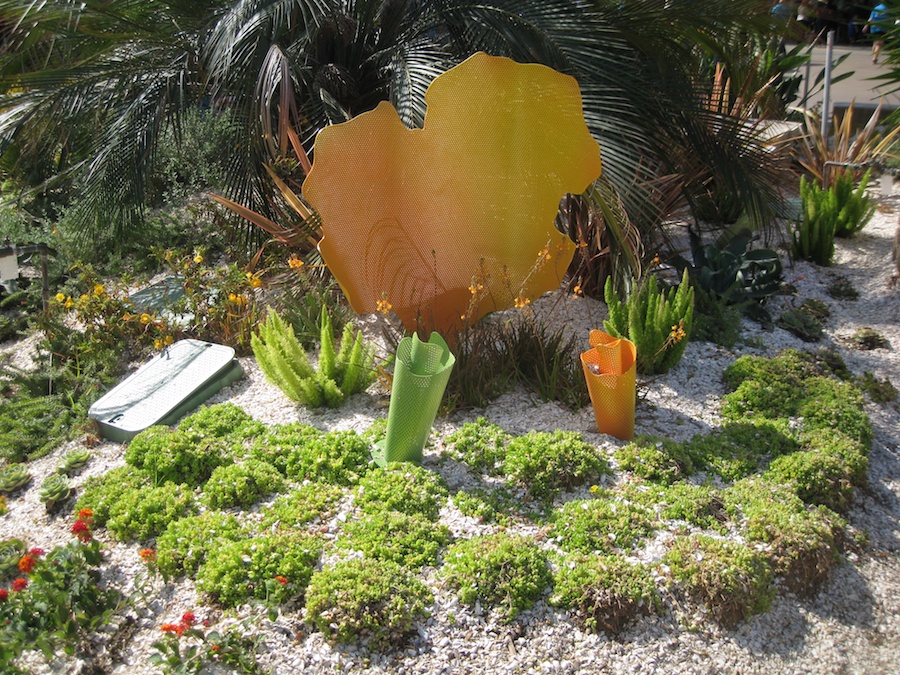
The grounds were wll maintained
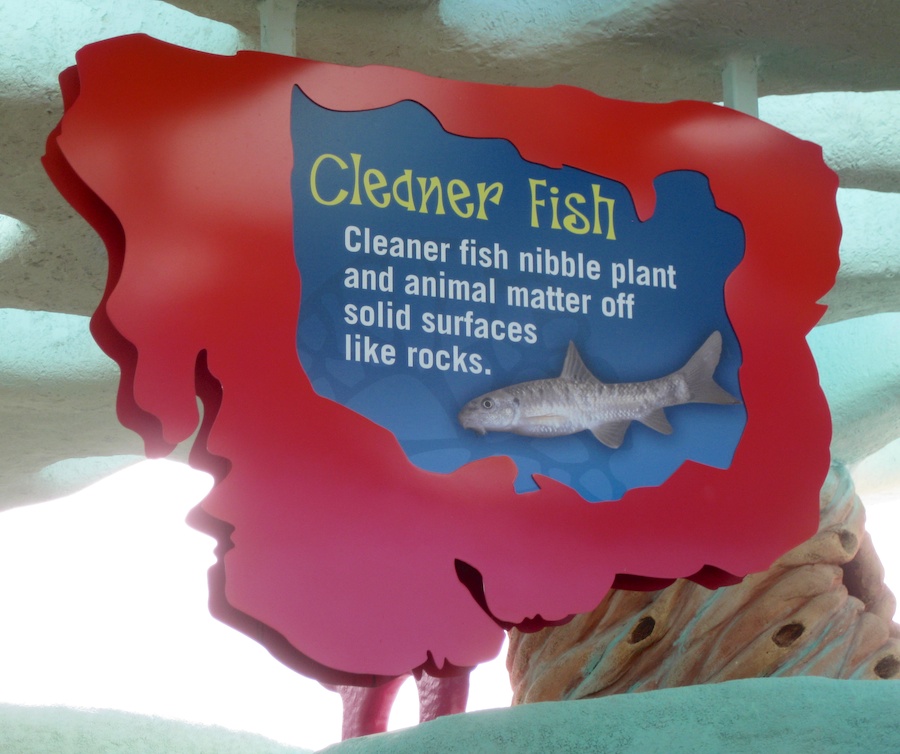
Amazing...
Did You Know? - Cleaner fish are fish that provide a service to other fish species by removing dead skin and ectoparasites. This Cleaning symbiosis is an example of mutualism, an ecological interaction that benefits both parties involved. However, the cleaner fish may sometimes cheat and consume mucus or tissue, thus creating a form of parasitism.
A wide variety of fishes including wrasse, cichlids, catfish, and gobies display cleaning behaviors. Similar behavior is found in other groups of animals, such as cleaner shrimps.
Cleaner fish advertise their services with conspicuous coloration, often displaying a brilliant blue stripe that spans the length of the body.
Solphone Stadium Was Our First Show Today
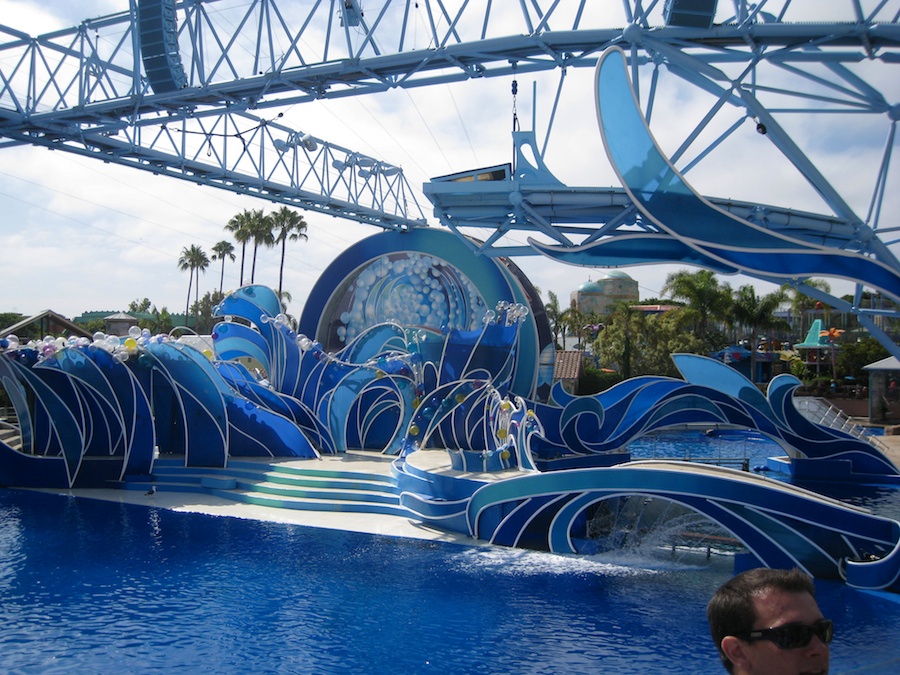
The stage was an amazing collection of waves and overheads
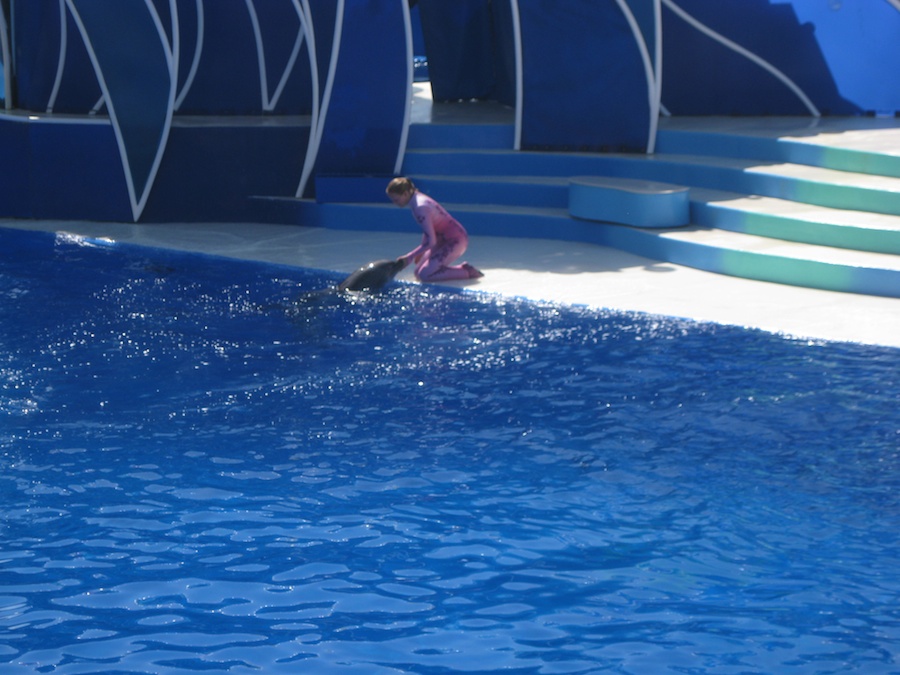
She loves her dolphons
Did You Know? - Join a young girl named Marina as she discovers the secrets of the sea and sky in a mesmerizing blue world of adventure and wonder. This unique, theatrical spectacular features dolphins, tropical birds and acrobats. Let Blue Horizons take you on a journey usually reserved for dreams.
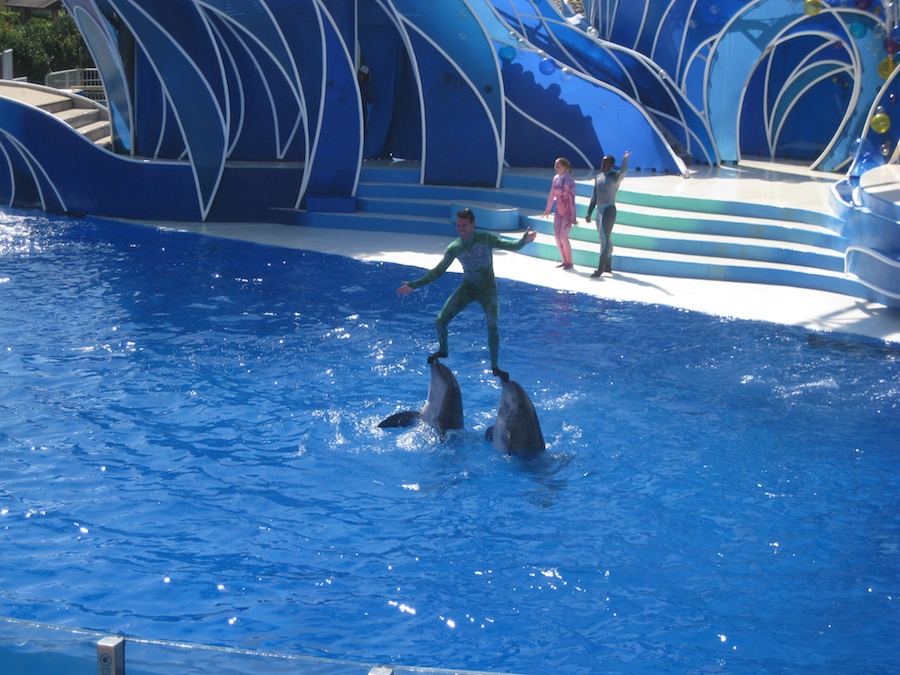
Riding the nose?
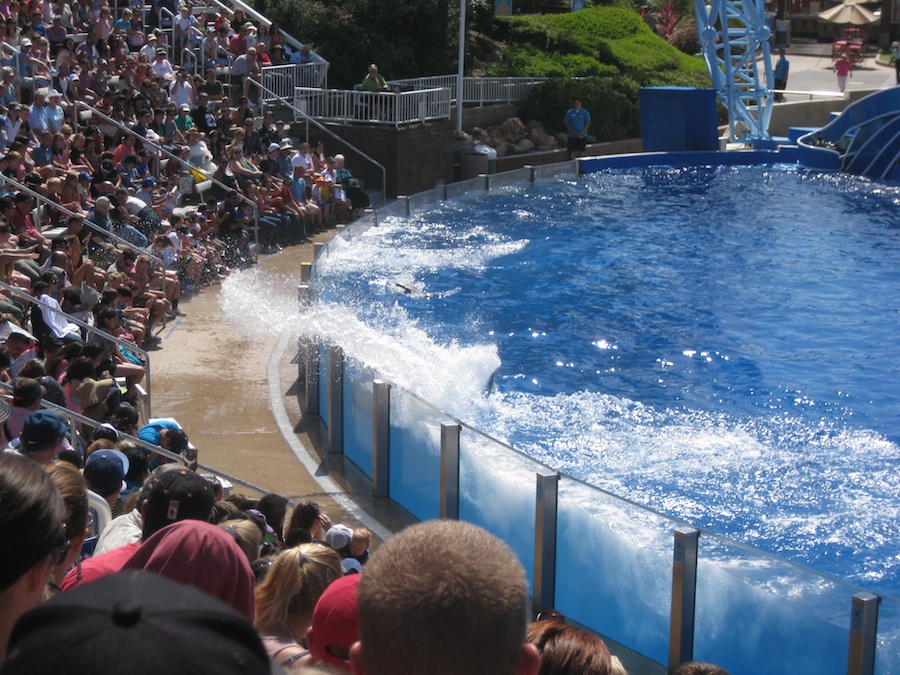
They love to splash... Lookout in the "Wet Zone"

Looking for targets?
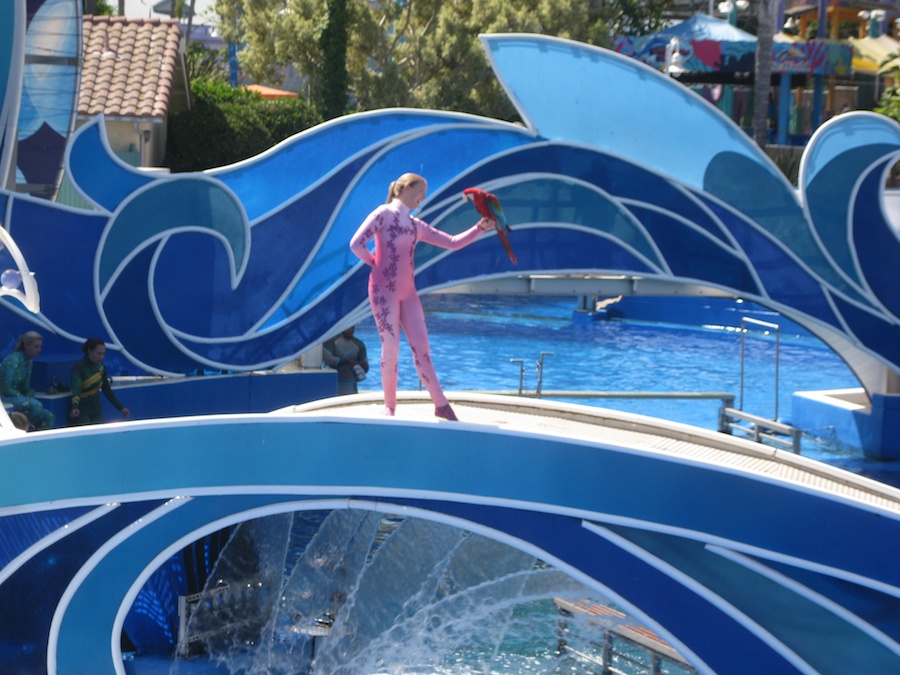
The real birds flew overhead
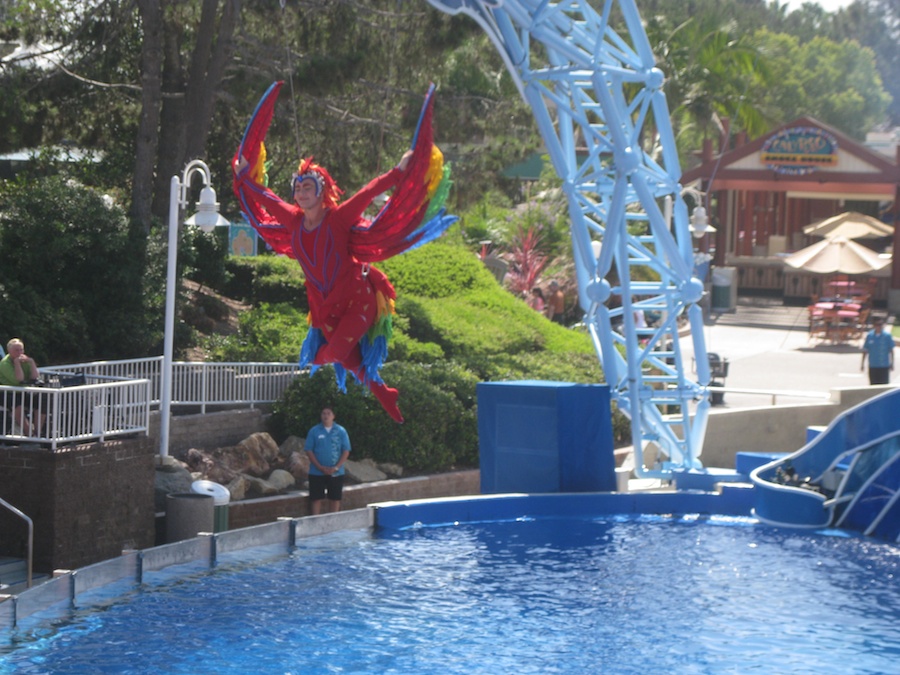
The Not-So-Real birds flw also
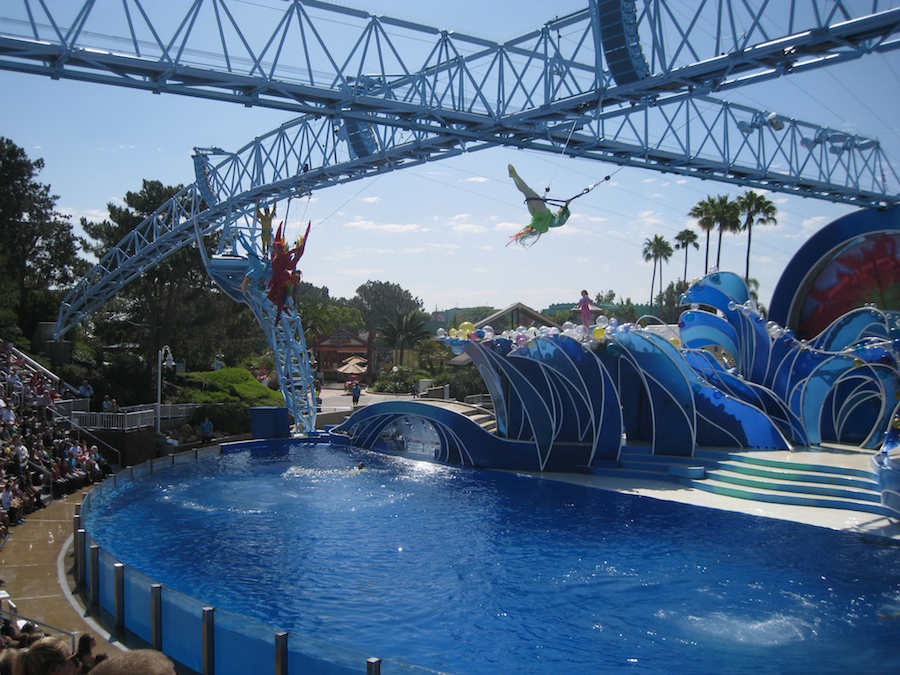
Quite a pulley and cable system
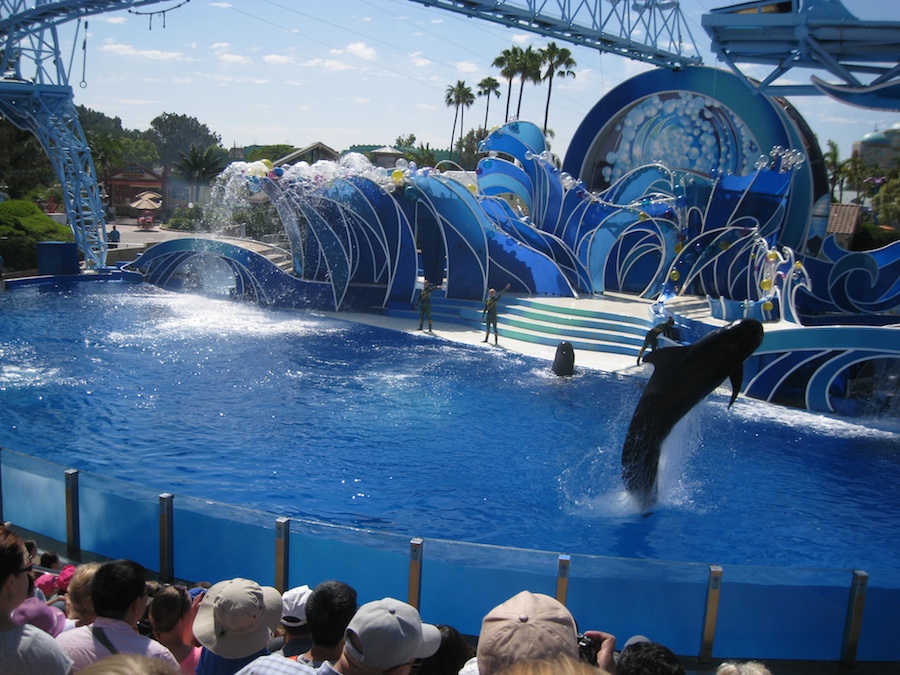
When he hits, water will fly!
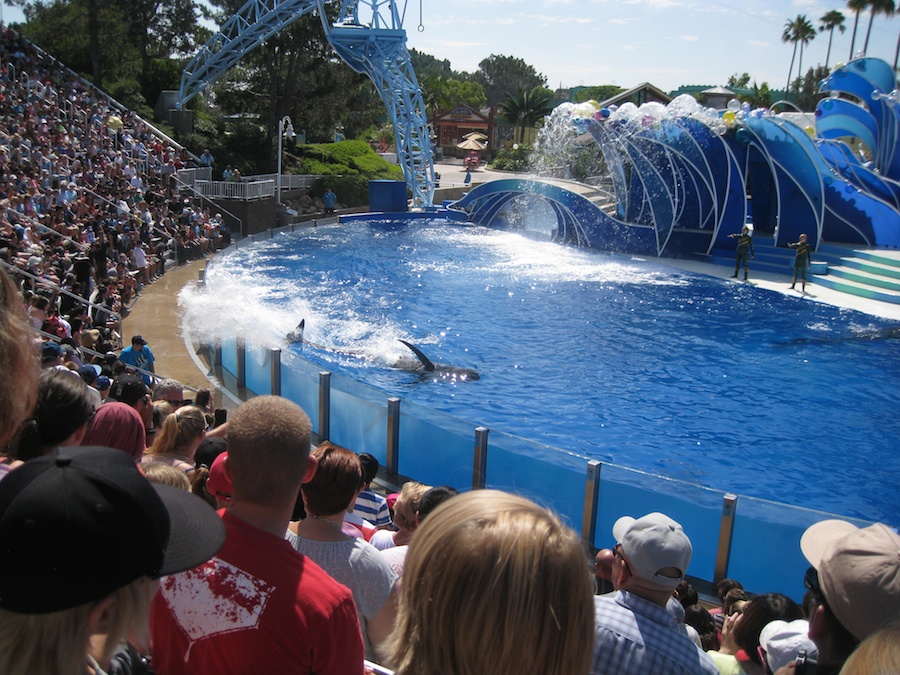
Watch out!

The show concludes
Show #2 - Shamu Stadium

The large pink items are TV displays that move and rotate
Did You Know? - Shamu is the name used for several SeaWorld orca (killer whale) shows and is the stage name given to the "star" of those shows, beginning with the original Shamu in the late 1960s and early 1970s. The orca Shamu died in 1971, but the names Shamu (and "Namu" and "Ramu") were trademarked by SeaWorld and have been given to different orcas at different times when performing in Shamu shows.
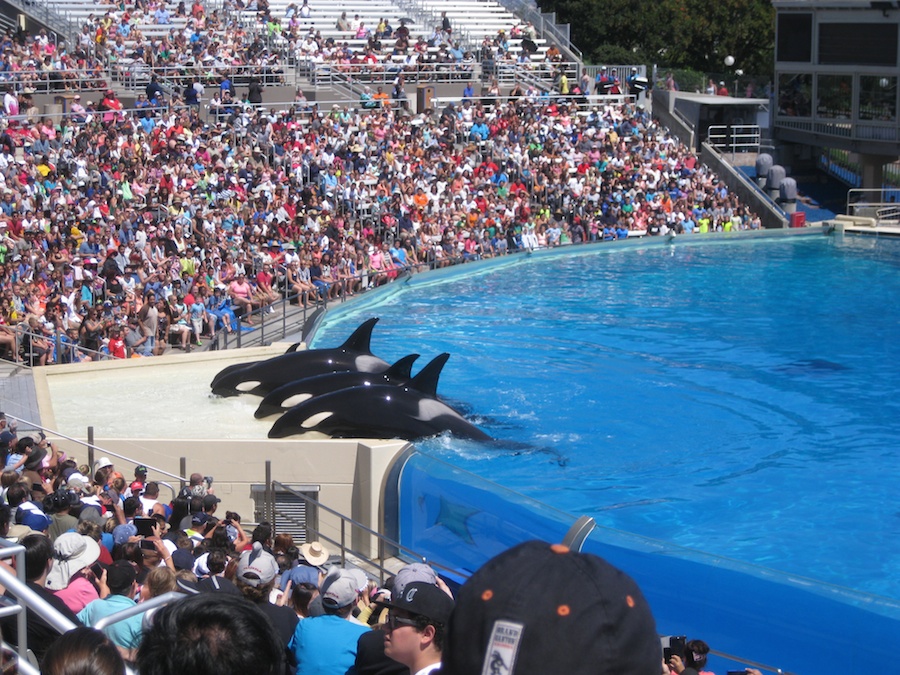
They are quite well trained but incidents happed over the years

Get ready to get wet
Did You Know? - On February 24, 2010, toward the end of a "Dine with Shamu" show, the orca "Tilikum" killed an experienced female trainer.
Dawn Brancheau, a 40-year-old with extensive training experience, drowned as at least two dozen tourists looked on from above a whale tank and from an underwater viewing area.
Brancheau was finishing up a session with Tilikum, the largest orca in SeaWorld's collection and its only mature male, following the Dine with Shamu show.
Following this event, trainers no longer go into the water with the orcas at SeaWorld parks shows.
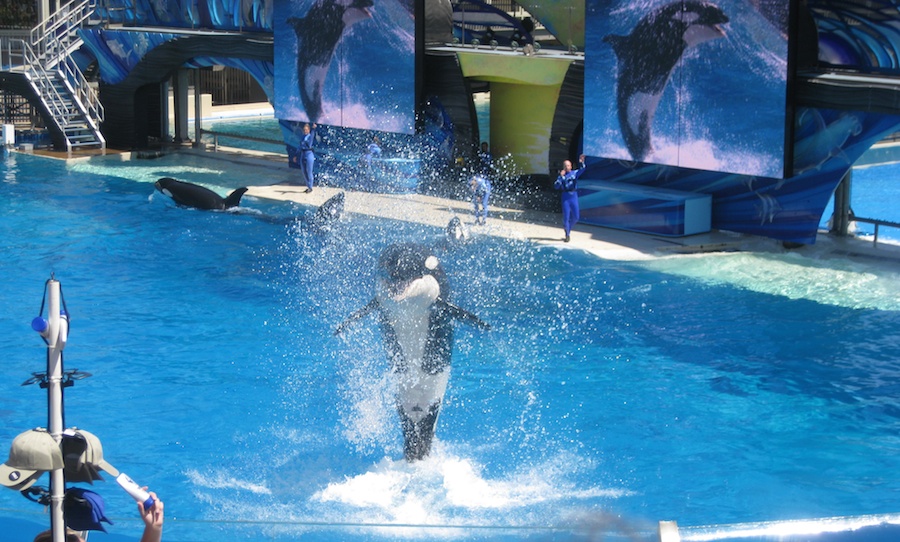
Here comes the water
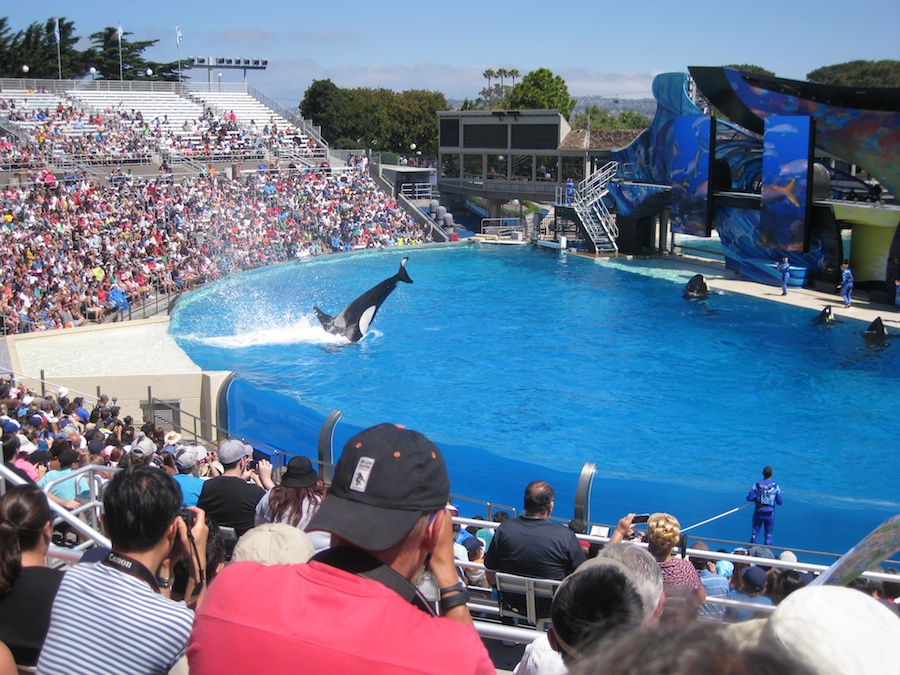
THe folks in the first few rows did get wet

Rewards are given for all tricks

Pretty exciting
Did You Know? - The killer whale (Orcinus orca) is the largest species of the dolphin family. It is found in all the world's oceans, from the frigid Arctic and Antarctic regions to warm, tropical seas. Killer whales are intelligent, versatile and opportunistic predators. Some populations feed mostly on fish, and other populations hunt marine mammals, including sea lions, seals, walruses and even large whales.

Looking at his targets
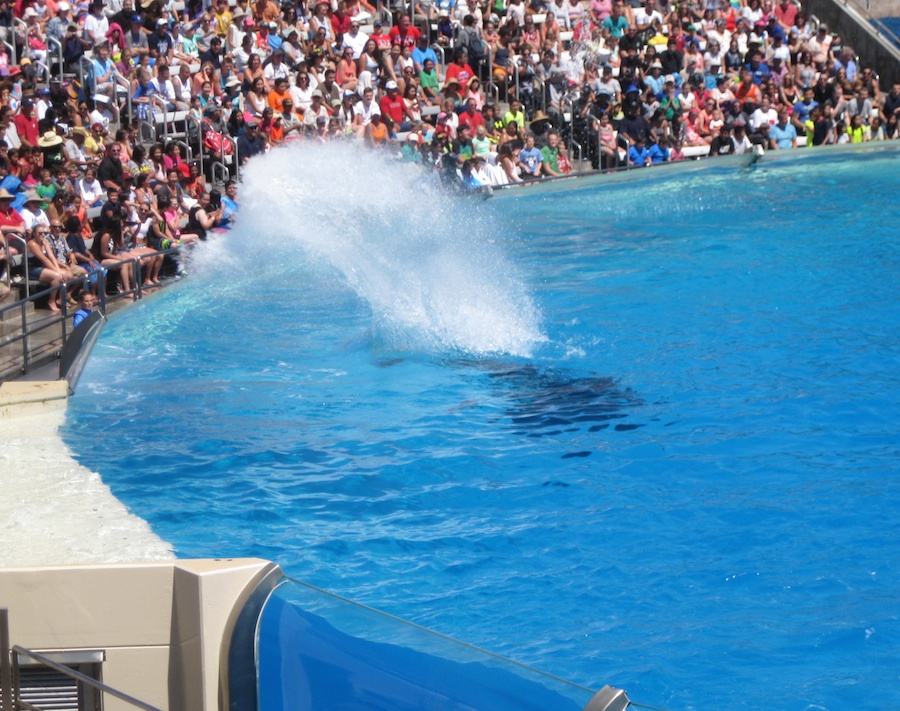
They swam fast near the edge using their tails to send water over the barrier

All the way out of the water

Saying goodbye
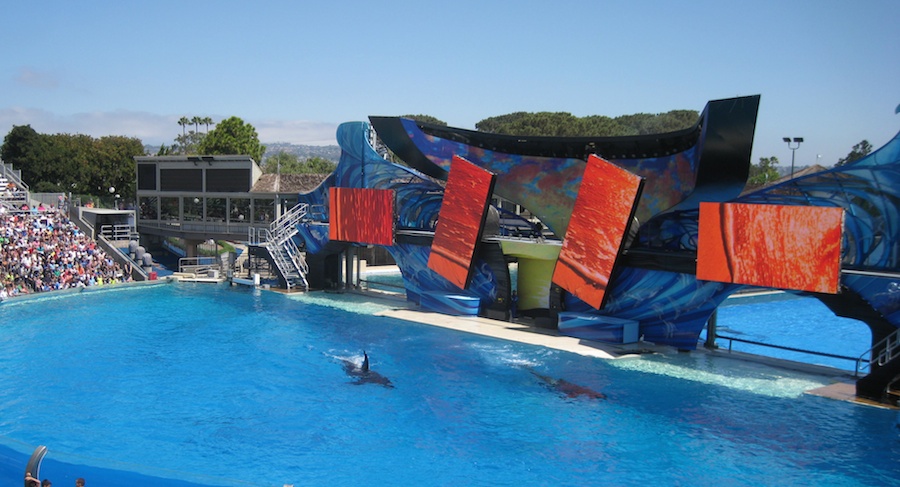
Notice the movement of the TV screens... Quite clever

When put together it is one large screen
Let's See Some Of The Exhibits

Flowers everywhere

A plaque in the ground to each and every state below the American Flag

Just to the right of the entrance

A new exhibit
Did You Know? - Animal Connections is where you get to meet some new and extraordinary animals face to face. These feathered, furry, scaly, spiky and buzzing will connect their unique worlds to yours and inspire you to conserve what remains of their precious habitat on our shared planet earth.
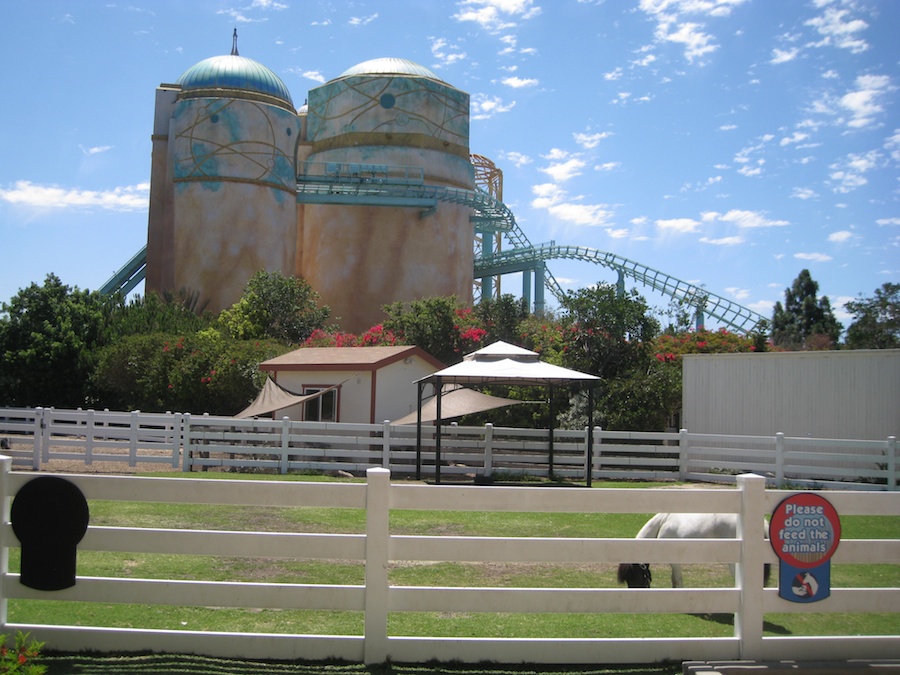
The pasteur was not opened to the public

The "barn" was quite large
The Flamingo Exhibit Allowed US To Get Close!
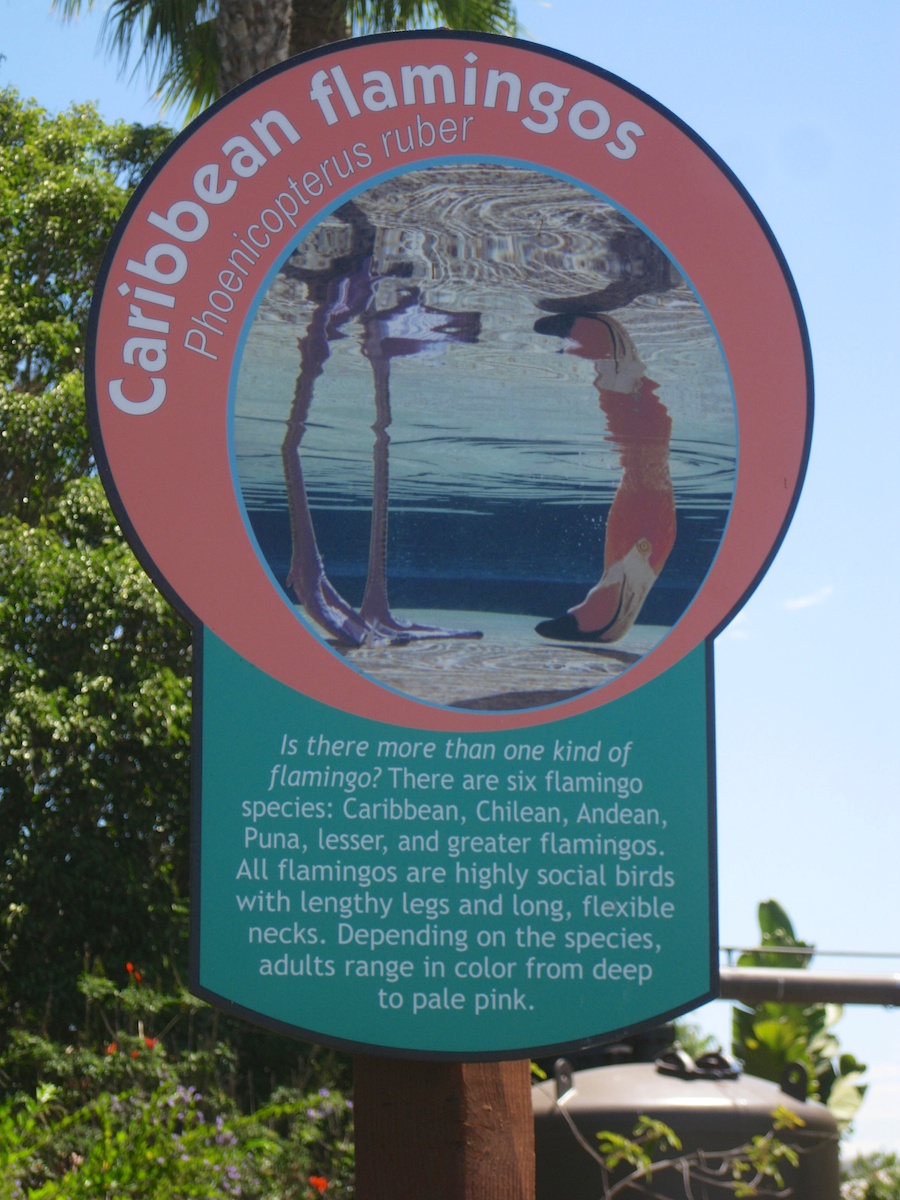
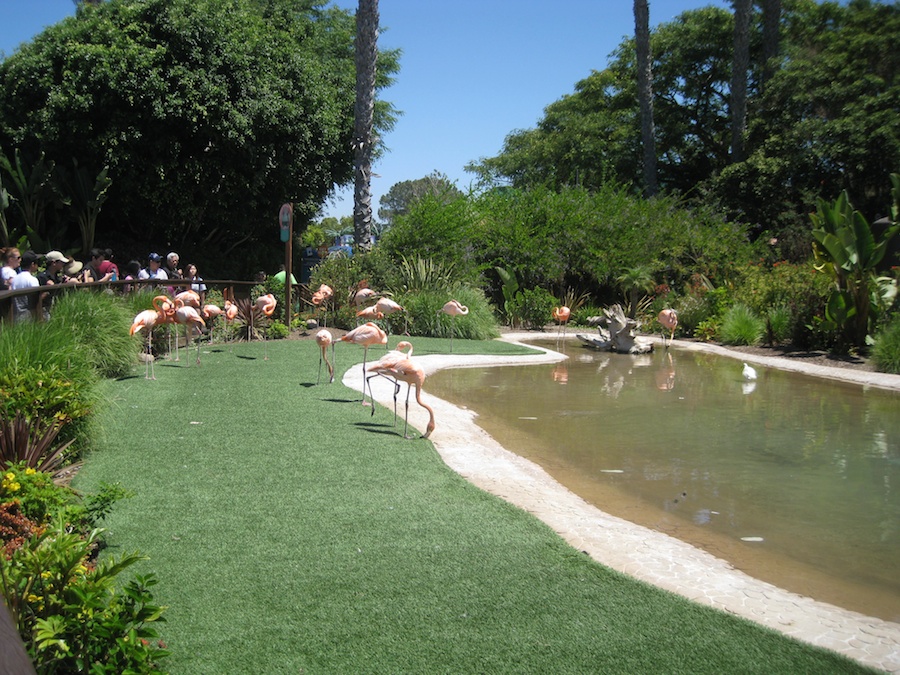
Pink and green
Did You Know? -
Vision plays an important role in helping flamingos synchronize collective displays of several hundred to several thousand birds.
Some biologists believe that a flamingo's night vision is poor, but better than a human's.
Like most birds, flamingos have well-developed color perception.
In zoological settings, flamingos recognize their uniformed keepers among visitors.
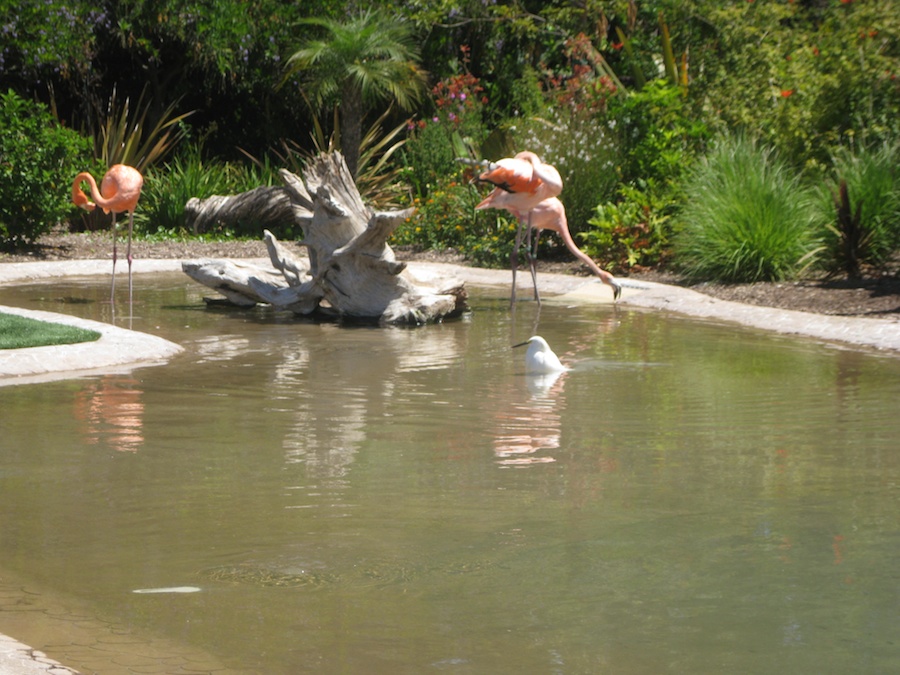
Quite an amazing bird

Standing on one leg... Looks pretty funny
Did You Know? - Flamingos often stand on one leg, the other leg tucked beneath the body. The reason for this behaviour is not fully understood. Recent research indicates that standing on one leg may allow the birds to conserve more body heat, given that they spend a significant amount of time wading in cold water.

Sound to sleep
Did You Know? - Young flamingos hatch with greyish reddish plumage, but adults range from light pink to bright red due to aqueous bacteria and beta-Carotene obtained from their food supply.
A well-fed, healthy flamingo is more vibrantly colored and thus a more desirable mate; a white or pale flamingo, however, is usually unhealthy or malnourished.
Captive flamingos are a notable exception; many turn a pale pink as they are not fed carotene at levels comparable to the wild.

The grass is synthetic
Did You Know? - Flamingos filter-feed on brine shrimp and blue-green algae. Their beaks are specially adapted to separate mud and silt from the food they eat, and are uniquely used upside-down.

Popped his head on his back and went to sleep
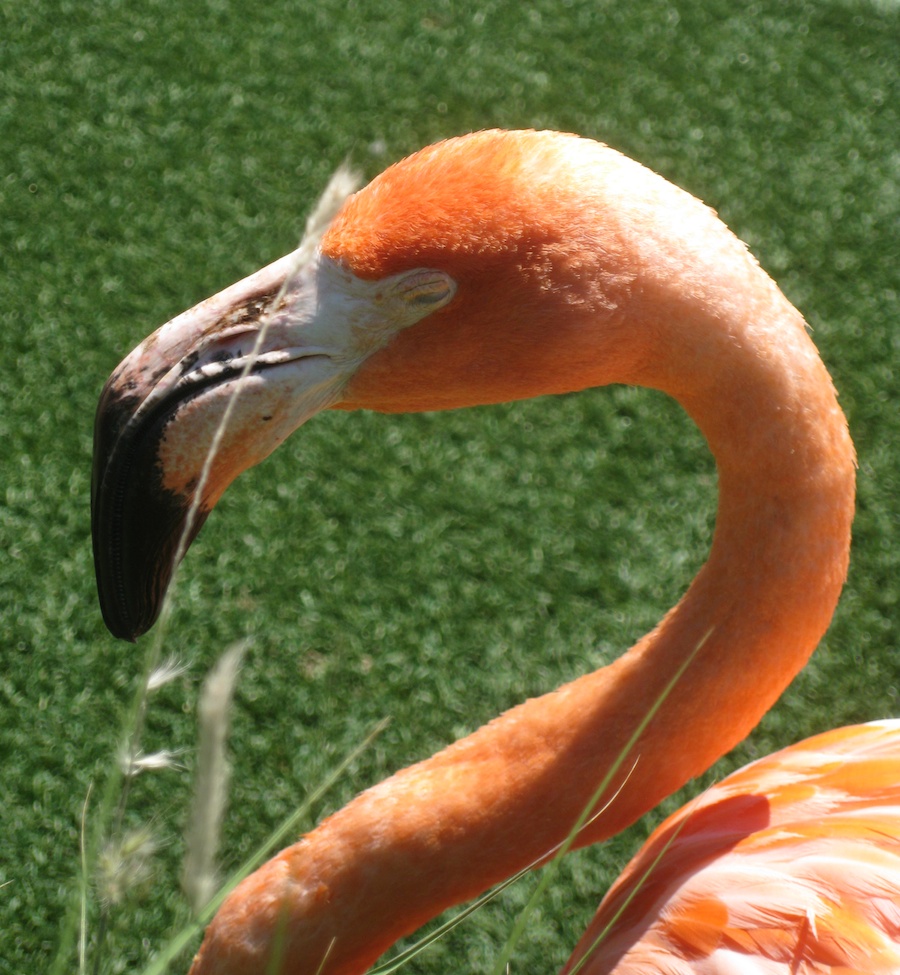
A very specialized beak
Did You Know? - The Old World flamingos were considered by the Ancient Egyptians to be the living representation of the god Ra, while in Ancient Rome, their tongues were considered a delicacy.
Show #3 - Pets Rule

Quite a "Club House"

Awe... The lady gets a rose
Did You Know? - ets Rule (Pets Stadium): A show that mainly features dogs, cats, and a pig, but a variety of exotic birds, emus, ducks, and a kangaroo, make appearances. Who Let the Dogs Out?
 Going for a walk
Going for a walk
